Are you having difficulty in making everyone in your team accountable at work? Or probably seeking a way on how to deal with employee mistakes as a manager? This article will guide you through procedures you can use to manage the mistakes of employees.
As a manager, in order to make working your 8 to 5 job a consistently pleasant experience, you need to make sure that everyone is aligned with your vision and objectives.
Nonetheless, you should also not expect it to be a walk in the park as it will not always be a perfect day.
This is because people are bound to make mistakes despite your careful employee vetting, screening, and selection.
Employees who are prone to making errors in the workplace can stir trouble and fuel frustration among other co-workers.
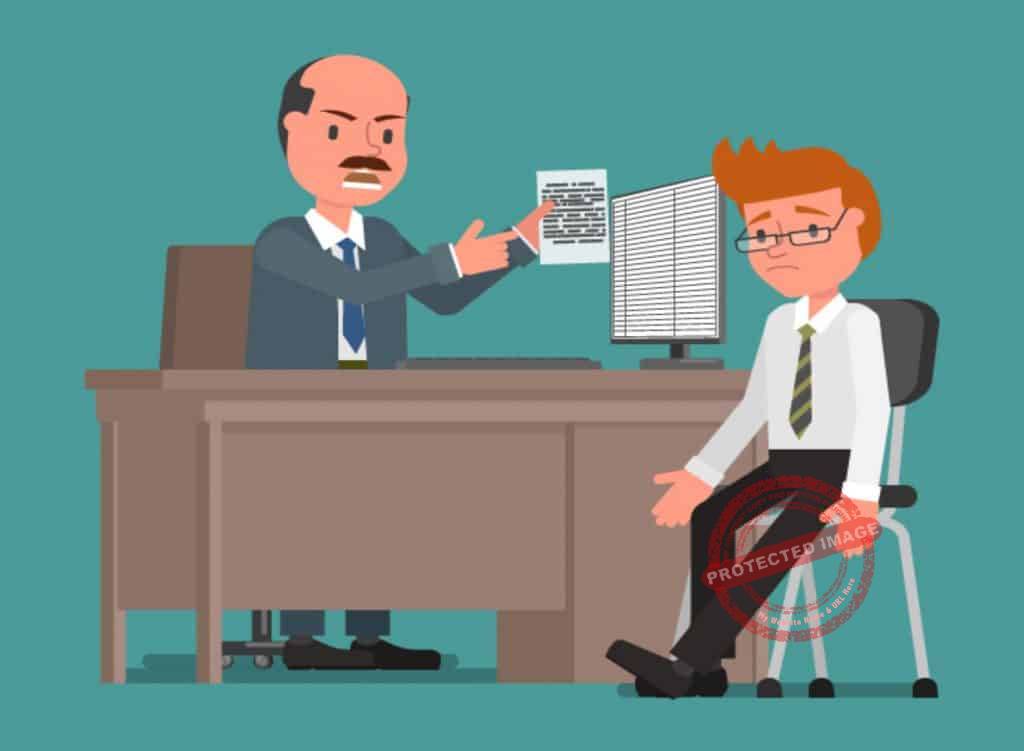
This can lead to a slowdown of your projects’ progress that can ultimately lead to compromising the overall security and stability of the organization.
But the real challenge is how to hold employees accountable for errors.
Being the manager, your initial reaction to mistakes is to rectify the mistake and make sure that such an error won’t be committed again, especially if it is a costly one.
While warnings and imposition of rules on merits and demerits might work in some contexts, you should really focus on the fact that significant lessons can be learned from such situations.
Mistakes are not necessarily a hiccup towards progress, they might actually be the best catalysts for growth and development.
Employee Mess-Ups That You Should Not Miss

Not all errors are worth the one-to-one session.
After all, running a business is not about continuously running the blame game.
Taking such a painful route can be demotivating on the part of your employees and energy-exhausting on your part as a manager.
But there are errors that you should not miss out on.
These include errors that are far more significant than others that if left tolerated can lead to bigger mistakes that can put the entire company in danger.
You might think that you already know the best ways to deal with employee mistakes, but the truth is that this might be more difficult than you think.
In this section, you will get a glimpse of employee mistakes that you cannot afford to tolerate because they will surely bite you back if you constantly allow them.
These can hurt you in the long run if you do not know how to deal with them.
1. The Constantly Clueless

This might appear petty, but an employee who constantly says, “I don’t know” or “What should be done?” can be a big liability to your team.
If an employee does not have the backbone to make a decision, it means that they are not empowered enough, or at least, they don’t feel the urge to stand by anything.
They constantly ask for specific instructions, and they feel safe in doing so.
How to solve it:
When such an employee seeks very specific direction from you or asks, “What should I do in this situation?” you need to give a response that compels him to think for himself.
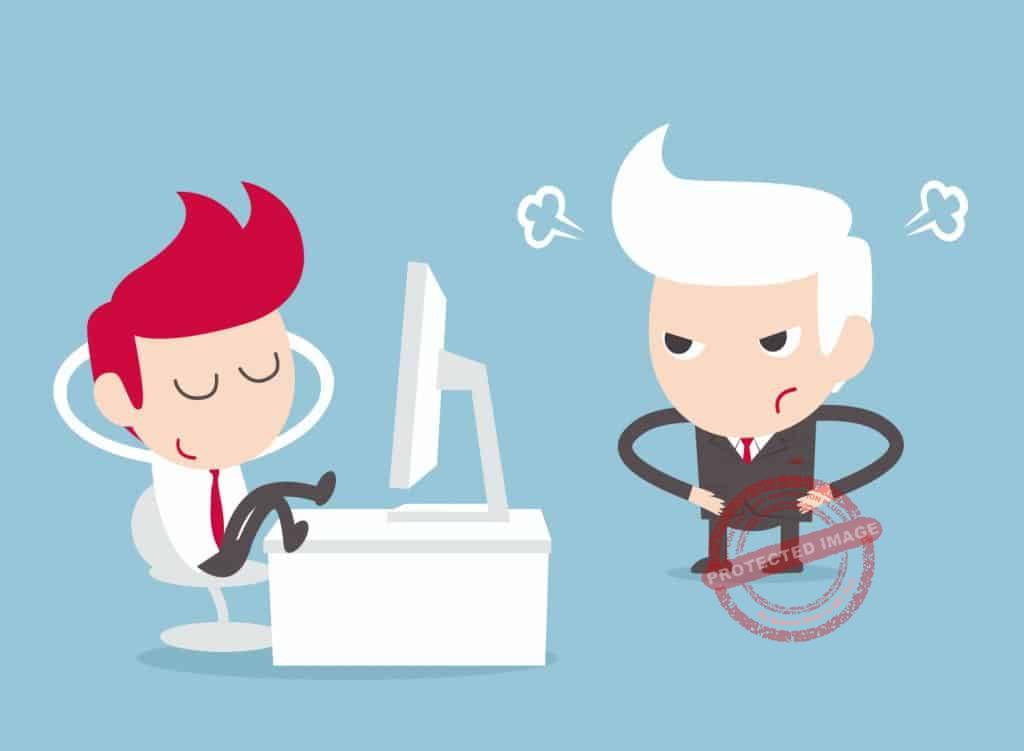
Instead of enumerating the steps, consider saying this.
In your opinion, what should be done in that situation?”
Provide him enough time to respond and encourage him to come up with his own creative approach.
Based on his answer, give constructive criticisms to give a nudge in the right direction and encourage him to be more accountable at work.
2. The TMI (Too Much Information) And The Detail Hoarder

If your employee does not know how much information is too much or too little then that can be a problem.
Both can be potentially damaging and can lead to unwanted situations.
The TMI employee can divulge secret information to the wrong parties.
On the other hand, the detail hoarder can prevent everyone from knowing the actual state of a project’s progress.
How to solve it:
During your employee induction, emphasize the preferred level of details.
Setting such standards can help set the expectations at an early stage.
Also, lead by example.
Your employees should not be the last to know when it comes to high profile projects that they are directly or indirectly involved in.
Don’t let them guess, empower them by giving them examples on how to do their future communications the right way.
3. The “Tell It When It’s Too Late”:

This is very common in any workplace.
There is always somebody who is too afraid to break the bad news.
In a world where we are all obsessed only with positive updates, many employees tend to keep their mouths zipped when it comes to sharing the details of negative developments.
This might be because they are afraid to be in the front line when the management vents its frustration and anger.
How to solve it:
A good manager would be able to explain that it is best to tell the bad news the very first moment it unfolds so that something can still be done with it.

As a manager, when such a mistake is already committed by anyone in your team, try to be as calm as possible.
In order for your employees not to be afraid to be the bearer of bad news, you should be generous in terms of making them feel that you trust them.
The question here really is not how to correct an employee, but how to encourage them to speak out before an error is too big to correct.
4. The Gossip Starter

Malice and misunderstanding are the end results of gossip.
It spreads like wildfire, and it breaks the trust within the organization.
Gossip also decreases the level of comfort in the workplace.
If you catch your employees gossiping, look at it as an opportunity to improve the team’s relationship.
Gossiping is one of the biggest employee costly mistakes because it can destroy good working relationships.
This is very difficult to mend once destroyed.
How to solve it:
If the gossiping habit is already prevalent within your team, emphasize that it is not acceptable and that you denounce it in strongest terms.
You should not tolerate gossiping because it highlights issues and concerns in the wrong way, and nothing gets solved in that manner.
Encourage everyone to confront people whom they have a problem with rather than speak behind their backs.
5. The Demotivated

There are employees who are great at starting a task but are not really good at finishing any of them.
They are only motivated to complete a portion of the project, leaving the rest unfinished.
How to solve it:
Promote and reinforce the culture of accountability because it is critical to your employee’s individual success.
The success of the individual is essential to improving the team’s overall key performance indicators.
Challenging the team to keep their word at all times is the best way to promote a culture of accountability.
6. The Outcast

If you are lucky enough to have one of these problematic employees, then you are facing the challenge of making them collaborate with their co-workers.
They are not very good at communicating, and they feel like they do not need anyone to succeed in the workplace.
Be cautious, outcasts are prone to mistakes.
How to solve it:
Look at both sides of the situation.
Find out if really it is that one person that caused the problem or the other team members pushed him to become an outcast?
Either way, you need to individually discuss with your employees their challenges when it comes to communication and collaboration.
Point out that it is essential for anyone who wishes to climb up the corporate ladder to team up and work with others.
Train them to handle communication crisis on their own and resolve issues to constructive criticisms and group discussions.
Ways To Deal With Employee Mistakes

Whether you like it or not, even the best employees are bound to make mistakes.
What sets a leader apart from a manager is how they treat such instances.
Ask yourself: will you treat an employee’s error as an avenue to teach an important lesson, or will you jump into any opportunity to pass the buck of blame?
A good manager is great at dealing with employee mistakes.
Such mistakes, instead of being a burden, are treated as “teachable moments” that can help the erring employer improve in the long run.
A manager can have the best intentions, but if he does not know how to execute it, he might appear like a micromanager and destroy an opportunity to bring about and trust and engagement.
How to Deal with Employee Mistakes
1. Enforcing Accountability

If you wish to truly learn how to hold employees accountable for errors then you must also show that you are equally accountable for each and every action that you do.
In many cases, business leaders avoid, by all means, to correct an erring employee.
The most common reasons behind this are mere avoidance and being passive-aggressive.
Mere avoidance does not work at all because this is like hoping and praying that the employee, on his own, will do one of the following:
- Learn his mistakes and not do it again
- Resign, or do another action that clearly and inevitably will lead to termination.

If you want to be truly a good leader in the workplace, you have to be proactive in taking action.
While you should not be driven by emotions in making any decision, you should also avoid the option of inaction.
Never let pride, lack of experience, or even fear hold you back in enforcing accountability.
Management of employee’s performance involves giving feedbacks, communicating expectations, and pointing out instances when such expectations are not met.
2. Striking A Balance

Of course, as a manager, you need to strike the perfect balance whenever your employees make a mistake.
Do not bring it up in such a way that you will kill your employee’s drive. Correcting mistakes can be made without putting anyone down.
Also, it is important to do it professionally.
Mistakes should not become a butt of jokes.
The way you address the mistake should be proportionate to the level of mistake made. Also, encourage the employee to speak up in order to hear his side out.
The mistake can be a learning experience, not just for your employee, but also for you!
3. Being More Appreciative Of Your Employee’s Effort

Most employees who make mistakes have a common feedback: they don’t feel that there is a chance to win back the trust.
Do not be that manager who tends to ignore the efforts and intention to make up for the mistakes made.
After all, nobody is perfect!
Be the first to understand what the employee should do to atone his mistakes.
By understanding this first, it will be easier for you to lead him back to the right direction.
Give yourself a chance to assess the situation, reflect deeply on what went wrong, and point out the most acceptable course of action that can be done.
If you see your employee actively correcting the errors made or improving from a recent less-than-acceptable state, take a minute or two to acknowledge it.
It will go a long way.
4. Avoid Making Assumptions
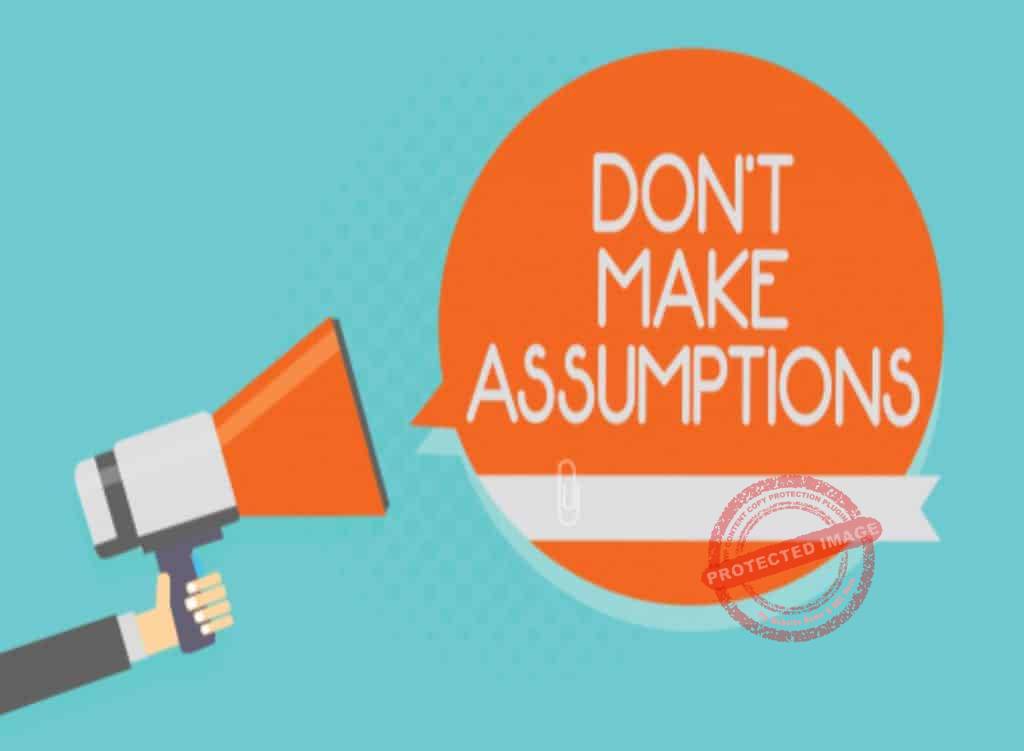
In order to deeply understand how to deal with employee mistakes, you need to ask the right questions to the erring employee.
Never rely on your assumptions because you can be wrong.
Keep an open heart and mind. Listen to the details coming from the erring party.
If you want to gain more background, you can ask his colleagues, too.
You should promote an environment that encourages employees to speak up even about his own shortcomings.
This way, you can be confident that everyone will be comfortable and honest in communicating with you and with everyone else in the team.
5. Look Beyond The Mistake

There might be many other factors that led to the mistake and it is sometimes not right to attribute it to an individual.
Imagine that it might be a string of situations that led to a dead-end and the employee was left without a choice but to take on the remaining option, which is to commit the mistake.
Take into consideration the fact that most tasks are completed by different people who perform different functions.
It is a chain, and chains have weak or breaking points.
Instead of dwelling on the mistake, as a manager, you should ask yourself, “If the same situation is to be faced again in the future, what could have been done differently?”
Also, it would make a world of difference if you will have the courage to ask your employee, “What support could I have extended in order to avoid this kind of mistake?”
6. Prevention Is Definitely Better Than Knowing How To Correct An Employee

If you don’t want any of your subordinates erring, help them avoid it.
If you constantly give feedback about their job performance and their behavior and attitude towards work then bigger problems can be prevented.
Also, instead of keeping a list of mistakes, wouldn’t it be easier to list down accomplishments?
Employees often say that they only feel the presence of their line managers when they do things that are deemed unacceptable.
That should not be the case.
In order to maintain a positive relationship, you as a manager should go out of your way to recognize your employees’ achievements as well.
7. Be Fair
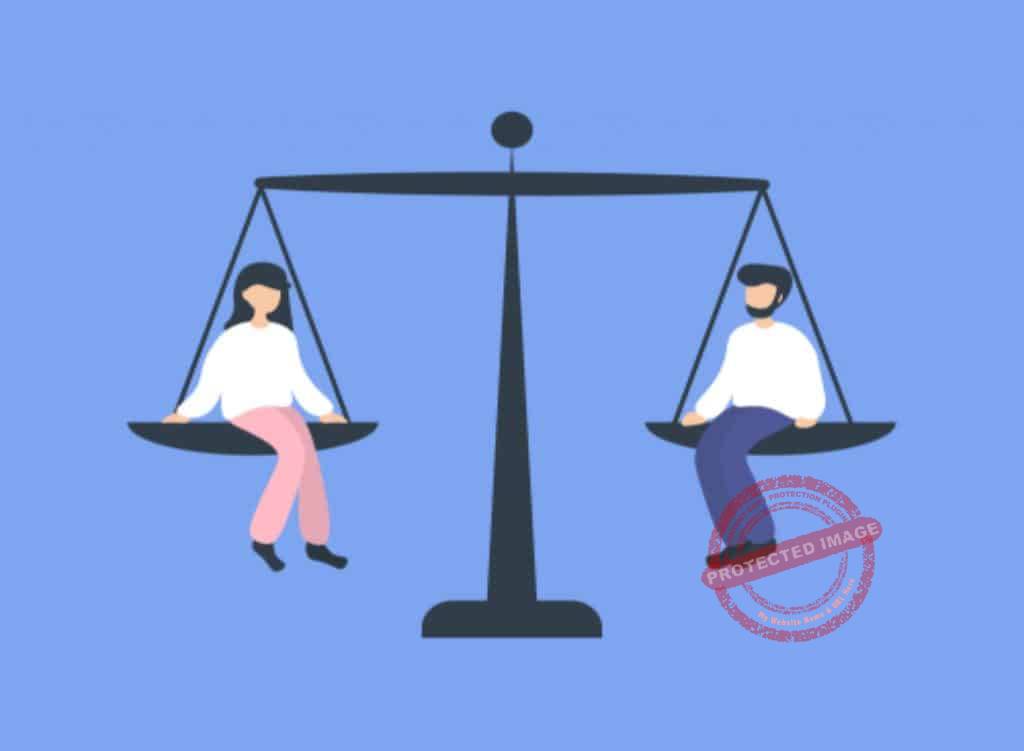
Everyone has favorites.
As a manager, you might have your favorite employees, but don’t let the bias show.
Also, you should not discriminate by virtue of sex, race, or religious beliefs.
Do not stereotype, or else, you will see your own manager pointing out this mistake of yours to you in the future.
8. Choose Your Words

When you are talking to an employee about his mistake, remain tactful and watch the way you phrase your words.
It is recommended to start by showing your appreciation and point out your employee’s strong points.
Be curious.
Instead of simply saying, “you made a mistake here,” it might be better to say: “I am wondering what led you to do this action.”
It is effective because it leads you to ask the right questions, and at the same time, you can make it clear that you have empathy to your employee.
Other Tips And Warnings On How To Deal With Employee Mistakes

Here are some other tips that you might find handy in managing mistakes:
- If you are a manager of an employee who is prone to mistakes, it might be wise to assign a mentor so that you don’t have to be the one to track his progress.
- To avoid employee costly mistakes, by all means, schedule a regular 1:1 meeting with your direct reports to keep the communication line open.
Be the authority, but make sure that you are approachable enough to discuss matters like this.
- Give a grace period to new employees.
At the beginning of their tenure in the company, it should be clear that they are allowed to make small mistakes without any consequences.
Mistakes are essential for learning and appreciating the work even more.

- Caring about employee growth is the best way on how to deal with employee mistakes.
Instead of punishing erring employees, why not consider giving opportunities to improve.
Expose them to training or draft a development program for them.
In conclusion, dealing with employee mistakes is never easy, but you should get used to it.
A good manager knows that it is a part of the drill.
You should not be surprised by mistakes happening because it is normal to have imperfect employees.
That real challenge actually rests on your shoulders.
Are you well-equipped to face such instances in a positive and healthy manner?
Click on Buy Now For a PDF Version of This Blog Post
 |
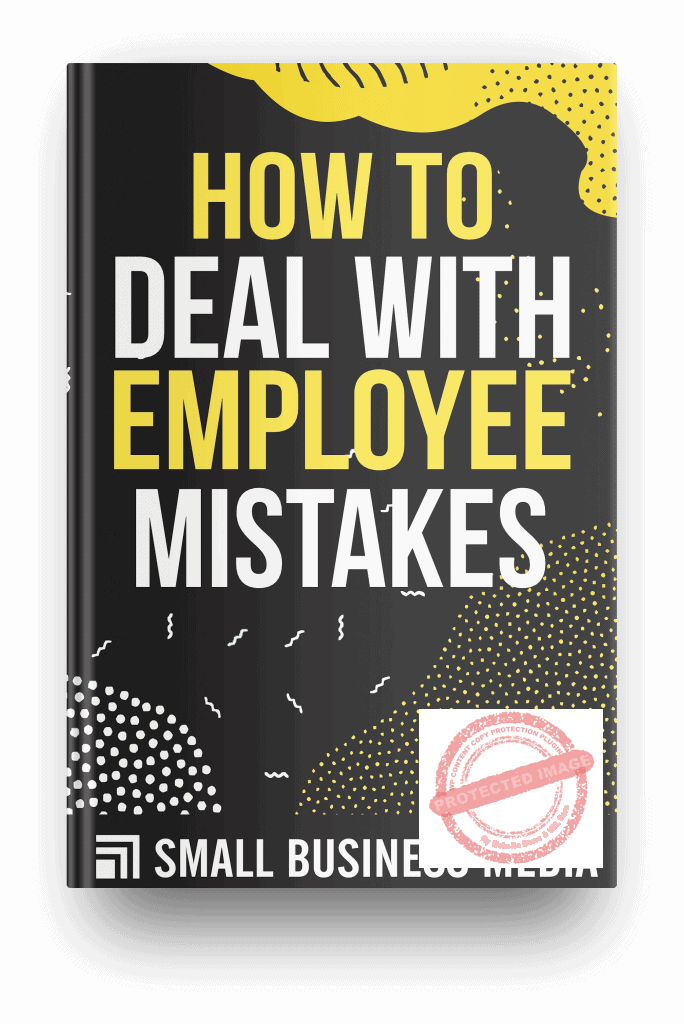










Thank for your support.
Very useful for my career and Business .